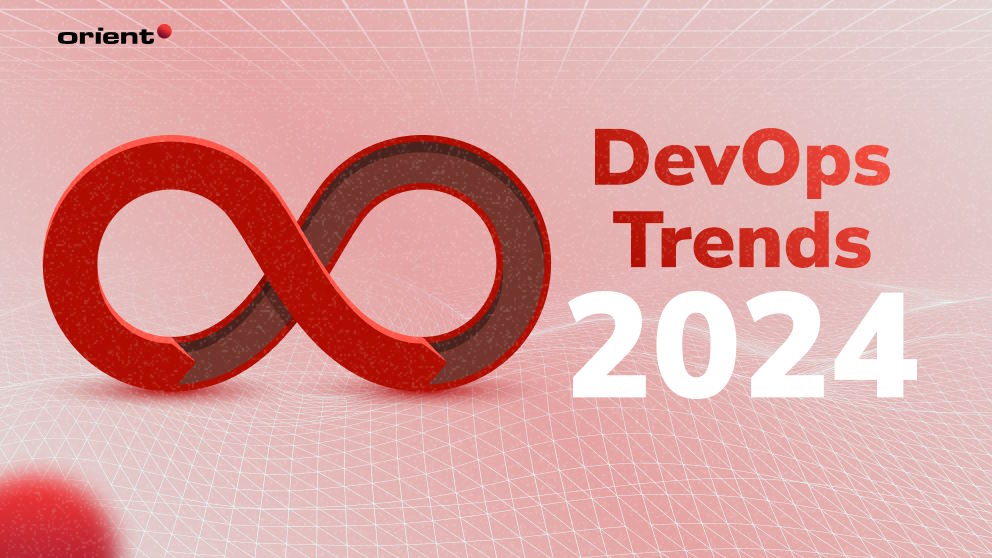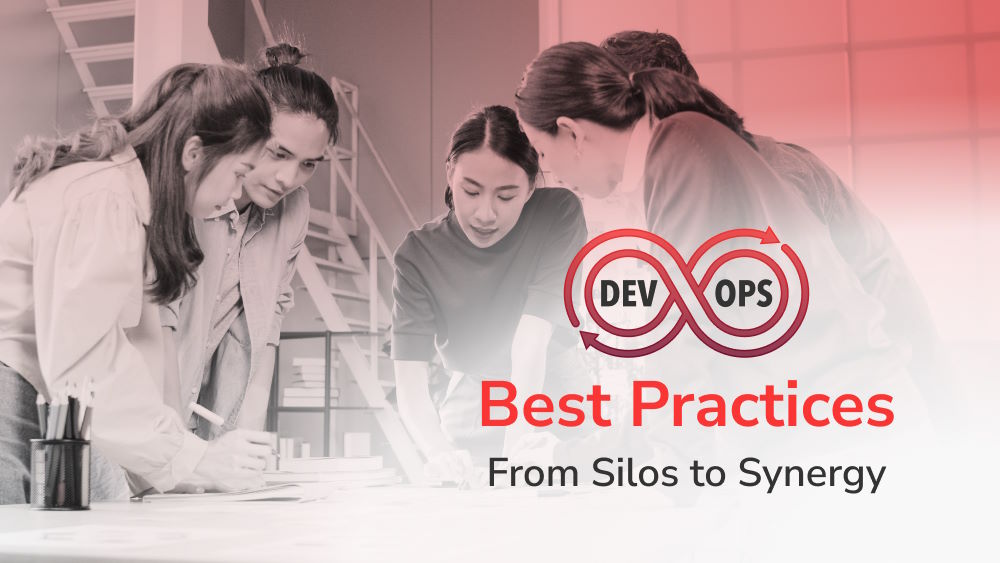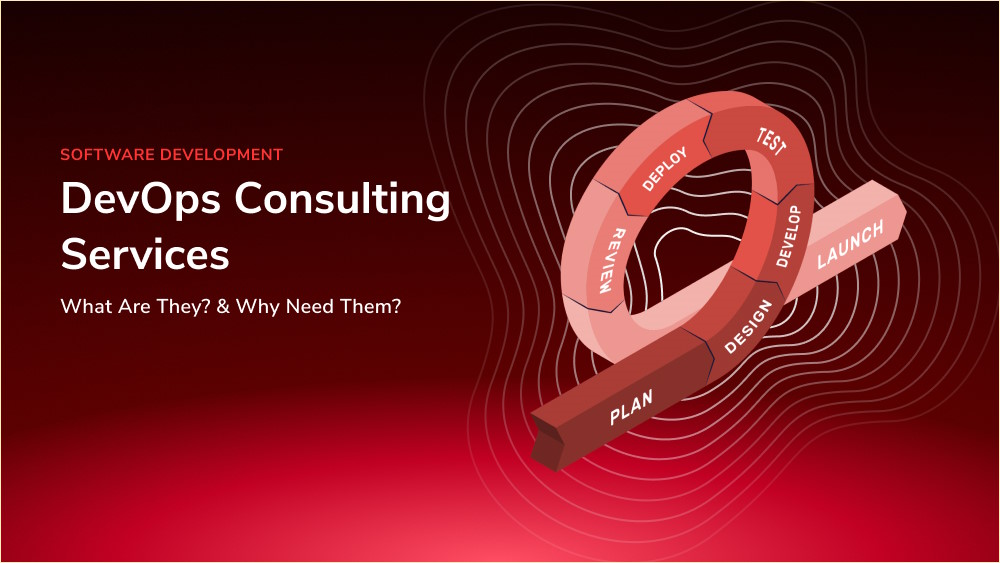What DevOps Trends Will We See in 2024? - Stay Ahead of the Curve

Content Map
More chaptersWhen it comes to modern software development practices, DevOps has gained mainstream recognition in the past few years. According to Havard Business Review, 86% of organizations worldwide have acknowledged the essential value of DevOps culture and 80% of businesses – be they tech companies or large enterprises – have become practitioners (Source: Puppet).
At the current pace, the global DevOps market is forecasted to balloon from $10.84 billion in 2023 to $24.71 billion in the next four years, according to the DevOps Global Market Report 2022.
DevOps, alongside other emerging technologies, is on the brink of further evolution. Hence, 2024 can be another transformative year for DevOps. We can anticipate a surge of novel DevOps tools and trends beginning to shape the landscape in 2024 and continuing into subsequent years. What are they? Who knows? But it won’t hurt to peek into the crystal ball and try to forecast what we will witness in DevOps in 2024.
DevOps as a Mindset

Let’s turn back to 2007 – the very beginning of DevOps – when Patrick Debois, who served as a database admin at that time, struggled with the friction of jumping back and forth between development and operations. In such a context, DevOps was coined as a way, a solution to serve his cause of bridging the gaps between Dev and Ops teams.
The definition of DevOps is explained as a set of practices, principles, philosophies, and tools implemented to automate and enhance development and operations processes, shortening the time between code commit and its release. A series of automated processes for software development and deployment brings forth what is called a DevOps pipeline. It hinges on the established best practices, such as continuous integration, automated testing, continuous improvement, continuous deployment, continuous monitoring, infrastructure as code, etc.
However, bear in mind that DevOps is more a mindset than a software engineering technique or technology. It embraces the entire software development process from start to finish. In short, the DevOps approach encourages seamless collaboration, communication, and integration among development and operations teams. The DevOps methodology is tasked to eliminate traditional silos between parties and facilitate cross-functional teamwork, thereby aiming to deliver quality software faster and more reliably.
The software development efficiency before and after DevOps is distantly different. The introduction of DevOps has brought about a seismic shift in how an application is developed and delivered.
Top DevOps Trends to Watch Out for in 2024 and Beyond

In the present day, the tech industry is continuously forging ahead at an unbelievable speed. Even while you are reading these lines, something new may have come in shape. In such a trajectory, DevOps processes have been through continual evolution and innovation to beat the same rate with the latest technologies and trends. Advanced technologies enable DevOps teams to revolutionize the software development lifecycle. Let’s see how the wheel turns and what DevOps trends are coming out in 2024.
DevSecOps: Security Integrated into the Pipeline

Security remains a top priority, as always. As businesses are venturing further into the digital world where cyber threats are sophisticated yet sometimes inevitable, incorporating security into the DevOps processes is an obligation, not an afterthought.
DevSecOps – stands for Development, Security, and Operations – is defined as an extension of the traditional DevOps model with a focus on integrating security practices, tools, and procedures into every step of the software development pipeline. In other words, security checks are conducted throughout the development processes, and they are tasked to reduce vulnerability exposure and mitigate risks associated with software releases. The logic here is simple: It is much more cost-effective to enhance security throughout the pipeline instead of rectifying issues post-deployment.
Greater Shift Toward Serverless Computing & Microservices Architectures
As we look further into the future of DevOps, serverless computing and microservices architectures are likely to take center stage in terms of agility and resilience. Overall, the shift to these two modern patterns offloads the burden of managing complex distributed systems and infrastructure from DevOps engineers, thus enabling them to focus on building scalable and efficient applications running on demand with minimal operational overhead.
Serverless computing platforms (such as AWS Lambda, Google Cloud Functions, and Azure Functions) offer scalability, flexibility, and cost-effectiveness by leveraging a cloud provider’s infrastructure resources. Cloud infrastructure management is shifted away from software developers. Instead, the cloud provider will be in charge of managing servers and scaling automatically based on workload demand. In this way, serverless computing enables DevOps teams to hand off managing infrastructure tasks such as capacity planning, maintenance, updates, scaling, and security.
Meanwhile, the microservices architecture involves breaking down a monolithic application into independent smaller services that can be developed, deployed, and managed separately by cross-functional teams. This enables developers to work on different components simultaneously, streamline processes, and expedite the development and deployment cycles. Moreover, microservices are more in line with Agile methodology and DevOps culture when they nurture collaboration and flexibility, which is another reason for it to shine in the future.
Automation Capabilities Driven by Artificial Intelligence and Machine Learning
In recent years, we have witnessed how machine intelligence and its relatives (e.g., robots and chatbots) have taken over the business world as well as daily personal lives by storm.
In the context of DevOps industry trends, the emergence of AI technology and machine learning has opened up vast possibilities for DevOps automation - which is the key to improving software development efficiency now and in the long run as it allows for CI/CD (Continuous integration and continuous delivery), and rapid response to changes.
AIOps and MLOps (Known as artificial intelligence and machine learning for IT operations) are expanding in capabilities, which can analyze vast amounts of data being generated by various tools used in different stages of DevOps pipelines. They prove to be useful in identifying patterns and correlations for faster root cause analysis, anomaly detection, predictive maintenance, failure prediction, performance optimization, capacity planning, and more.
By offloading these tasks to algorithms with cognitive abilities and self-learning capabilities, DevOps teams can focus on more critical tasks such as problem-solving, coding, and troubleshooting. This is a significant innovation not only in streamlining the DevOps workflow but also in mitigating errors or risks caused by manual intervention.
Emergence of NoOps
Another trend we may witness in the upcoming years is the rise of NoOps, or “No Operations.” It is an extension of the DevOps concept, where the idea is to boost operational efficiency to such an extent that a dedicated ops team becomes unnecessary. NoOps aims to free developers from operational concerns, enabling them to focus wholly on coding and innovation.
However, the transition to a NoOps model is not without challenges. It requires a significant shift in the organizational culture and a high degree of automation. Nevertheless, with the advancements in AI and automation technologies, NoOps could become a viable option for many organizations.
DevOps as a Service (DaaS)

Lots of companies may grapple with managing DevOps infrastructure and processes; that’s why many of them turn to DaaS as a way to relieve their DevOps operational burden.
This is a recent trend that involves outsourcing DevOps processes to third-party service providers. By leveraging this model, businesses can implement DevOps to build a consistent and reproducible environment while avoiding the expenditures and stresses associated with DevOps management.
In addition, DaaS enables organizations to tap into the expertise of experienced DevOps consultants and professionals and gain access to advanced automation tools, saving them time and resources while ensuring a faster return on investment (ROI). DaaS is forecasted to be in widespread use in 2024 and perhaps many years later.
GitOps – The New Norm
GitOps is a relatively new addition to the DevOps ecosystem, and it is rapidly gaining popularity. This is an extension of the concept “Infrastructure as Code (IaC)” that harnesses the power and simplicity of Git version control. It serves as the cause of infrastructure automation and control.
In GitOps, developers manage all code changes, including infrastructure configuration changes, in a Git repository. These changes are then automatically propagated to the production environment via continuous delivery pipelines.
Adoption of Kubernetes and Containerization
Kubernetes has emerged as a flexible and scalable platform for automating deployment, scaling, and managing containerized applications. This trend is believed to continue into 2024 and beyond, given the benefits of containerization, such as improved scalability and more efficient resource utilization.
Containers allow for more consistent deployment across different environments. It is easier to manage complex applications and services. As more organizations adopt a microservices architecture, it is predictable that the use of Kubernetes and other container orchestration platforms will become even more prevalent.
ChatOps
What is it? Sound familiar? Simply known as chatbots for DevOps.
ChatOps is a relatively new development in the DevOps industry that integrates popular chat platforms (like Slack, Teams, etc.) into the DevOps workflow. It involves deploying chatbots - computer programs designed for conducting conversation via textual or auditory methods. This integration streamlines communication among team members, reduces the need for switching between different tools and interfaces, and provides real-time monitoring and notifications.
Low-code/No-code Automation
Low-code/no-code automation solutions are gaining traction as they make it possible for businesses to build and deploy applications with minimal code and programming knowledge.
Needless to say, these approaches soon became a go-to strategy for faster and more efficient development – meaning lower costs, shorter time, and greater flexibility. Low-code/no-code platforms can be integrated with a DevOps process or toolchain to ease the automation and productivity of the software delivery pipeline.
Multicloud Infrastructure
As cloud computing continues its rapid expansion, businesses are increasingly leveraging the strengths of multiple cloud service providers to cater to their diverse operational requirements. This tendency is expected to continue as businesses look for methods to avoid vendor lock-in and take advantage of the strengths of different cloud service providers.
This DevOps trend is driven by the desire to harness the unique capabilities and advantages offered by different cloud platforms, thereby enabling organizations to optimize their IT infrastructure, maximize efficiency, and enhance innovation.
The Demand for Outsourced DevOps Teams
It is not considered a trend but an inevitable reality allegedly to occur, to be exact. As DevOps continues to expand in popularity, the demand for experienced and talented DevOps professionals will also increase. Unfortunately, the competition for tech talent has no sign of cooling down, plus the cost of hiring in-house DevOps engineers rises.
As a result, businesses that strive to adopt DevOps practices sooner or later face a shortage of the required personnel, and outsourcing is the most viable solution they can resort to. Need aid? Come to Orient Software. At Orient, we provide an end-to-end suite of custom software development, IT staffing, consulting services for DevOps maturity assessment, and more. Contact us for more info.
The Future of DevOps in the Software Development Is Exciting

In essence, DevOps has not strayed far from the core values for which it was created and applied up to this point. However, the future of DevOps is believed to be full of innovations in parallel with advancements in technology and the digital landscape.
In this direction, we will soon witness new DevOps trends come to light, and the current ones evolve further. All the predictions we made above are just a part of what is going to happen in the future, as we are convinced that new changes and fresh ideas will continue to shape the DevOps landscape. Perhaps there will be many other trends. Time will tell, but what’s certain is that there is much more to look forward to in the world of DevOps.
How about you? Which DevOps trends do you think will seize the spotlight in 2024 and the following years?







